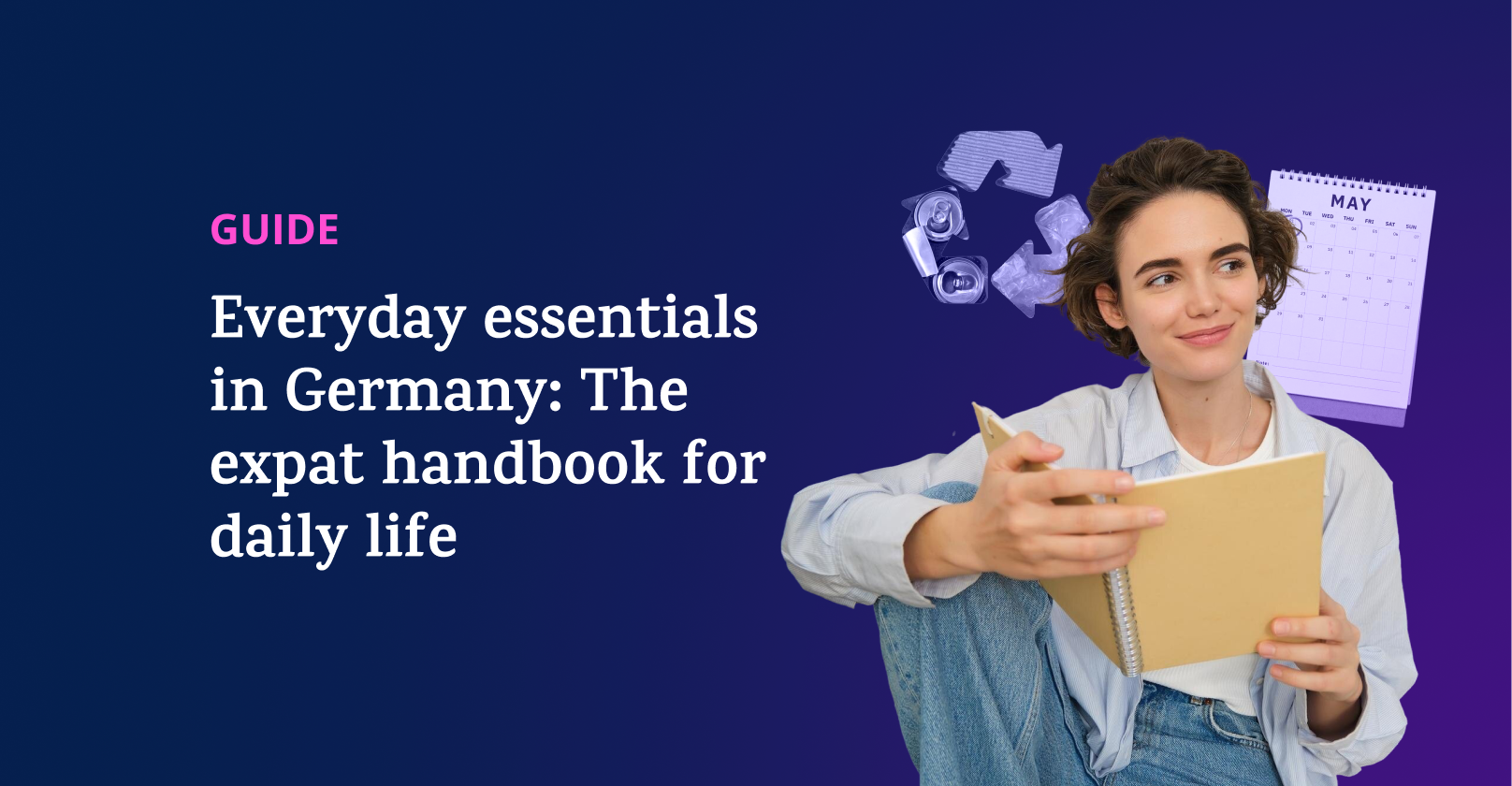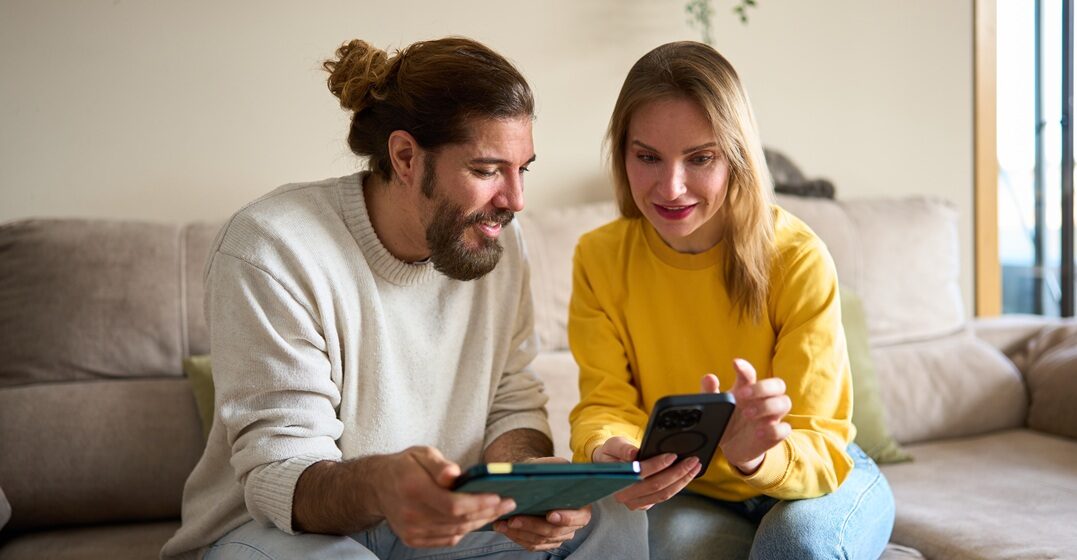German capitalization rules: What to capitalize and why

The rules that govern German capitalization might seem daunting at first. Why is der Tisch capitalized while laufen is not? And what’s the deal with Sie vs. sie? Don’t worry — German is above all a systematic language, and once you understand the logic behind this system, reading and writing will become much easier.
In this guide, we’ll break down the essentials: which words are capitalized, which aren’t, and how to spot the common traps that trip up learners. We’ll also share some real examples and tips to help make it all stick.
- Why is capitalization important in German?
- Which words are capitalized in German?
- What’s not capitalized in German?
- Formal German, polite forms and exceptions
- Real-life examples and tips
- FAQs
Why is capitalization important in German?
German vs. English: A key difference in writing
If you’ve ever read a sentence in German and wondered why every other word seems to start with a capital letter, you’re not alone. Here’s the deal: German nouns are always capitalized. This rule applies not only to proper names, like Berlin or Angela Merkel, but also to common nouns ranging from Apfel (apple) to Zeitverschwendung (waste of time).
English uses capitalization much more sparingly, reserving it mainly for proper nouns and the beginnings of sentences.
What capital letters communicate in German
Interestingly, online learners — especially on community forums like Reddit — tend to agree that all those capitals are actually a helpful feature. Capitalization can make it easier to scan for meaning, especially in a language in which adjectives latch on to nouns, (making them potentially very, very long).
Because German nouns are capitalized, you can spot them at a glance. Think of them as little linguistic landmarks in a sentence. In this light, capital letters aren't merely a formality — they're a navigation tool.

Learn German with Lingoda
How it works

Which words are capitalized in German?
All nouns, always
In German, every noun is capitalized — with no exceptions. If a word corresponds to a person, place, thing or idea, it starts with a capital. That includes animals (der Hund), emotions (die Freude), objects (das Buch), professions (der Lehrer) and even times of day (der Morgen). If it’s a noun, it’s capitalized.
Proper nouns and names
If all nouns are capitalized in German, it stands to reason that names of people, cities, countries and companies are capitalized — just like in English. You’ll see Anna, Berlin, Deutschland and Volkswagen all starting with a capital letter.
The first word in a sentence or quote
The first word of any sentence is always capitalized, even if it’s not a noun. The same goes for the first word in a direct quote. So, whether it’s “Guten Morgen!” or “Ich bin müde.”, the first word gets capitalized. This is true regardless of which part of speech it is.
What’s not capitalized in German?
Here’s where German flips the script from English. In German titles and headlines, verbs, adjectives and adverbs remain lowercase unless they’re the first word in a sentence. So, while an English headline might read, “Running Fast Is Fun,” the equivalent headline in German would state, “Laufen schnell macht Spaß.” Only “Spaß” is capitalized, because it’s a noun.
Many newcomers to German instinctively capitalize verbs when writing headlines or titles. This feels natural if you’re used to English, but it’s not how it works in German. If it’s not a noun and if it doesn’t start the sentence, it stays lowercase. No exceptions, no drama.
Formal German, polite forms and exceptions
When adjectives or verbs become nouns (nominalization)
This is one of the trickier rules — but also one of the most common. When a verb or adjective is used like a noun, it gets capitalized. This is called Nominalisierung (nominalization). You’ll spot these nouns easier by looking for signal words that appear in front of them, such as articles (das, ein) and certain prepositions (zum, beim).
For example, consider das Lesen (reading) or beim Spazierengehen (while taking a walk). The nominalized word may look like a verb, but it’s acting like a noun, so it gets a capital letter.
Sie (formal ‘you’), Ihr (formal ‘your’), informal du and dein
What about “Ihr” or “Sie” in German? These words were in fact once capitalized in the formal correspondence of yesteryear. Today, the standard is to leave them lowercase, e.g., sie, ihr, du and dein.
Some people still capitalize these addresses in very formal and traditional writing, but it's optional and fading fast. You’re safe sticking with lowercase, though it’s something to look out for if you spend a lot of time reading old German texts.
Real-life examples and practice tips
A good way to get the hang of German capitalization is to read short texts and spot the nouns. For example:
Heute Morgen hat der Lehrer dem kleinen Hund einen Ball gegeben.
How many capitalized nouns can you find? (Hint: Heute in this case is actually an adverb, not a noun. It’s only capitalized because it comes at the beginning of the sentence.)
This kind of practice trains your brain to recognize patterns, and it can help your writing feel more natural over time. At Lingoda, we build these kinds of real-world examples into our lessons, so you’re not just learning the rules — you’re using them.
Are pronouns capitalized in German?
Pronouns are not capitalized in German, except for the formal addresses Sie and Ihr (where it’s optional but common).
Are days of the week capitalized in German?
Yes, German days of the week (Montag, Dienstag, etc.) are capitalized because they are nouns, and all nouns in German are capitalized.
German capitalization rules in action: What to remember
German capitalization has its own logic, but once you get the hang of it, it starts to make perfect sense. Watch out for those noun-like verbs and formal pronouns, and you’re well on your way.
The best way to make it stick? Practice in real-life conversations. With Lingoda, you’ll speak from Day One, building confidence with help from native-level teachers who challenge you to apply the rules you learn in everyday situations. Enroll in one of our courses and you can learn German starting today!

Learn German with Lingoda
How it works

















